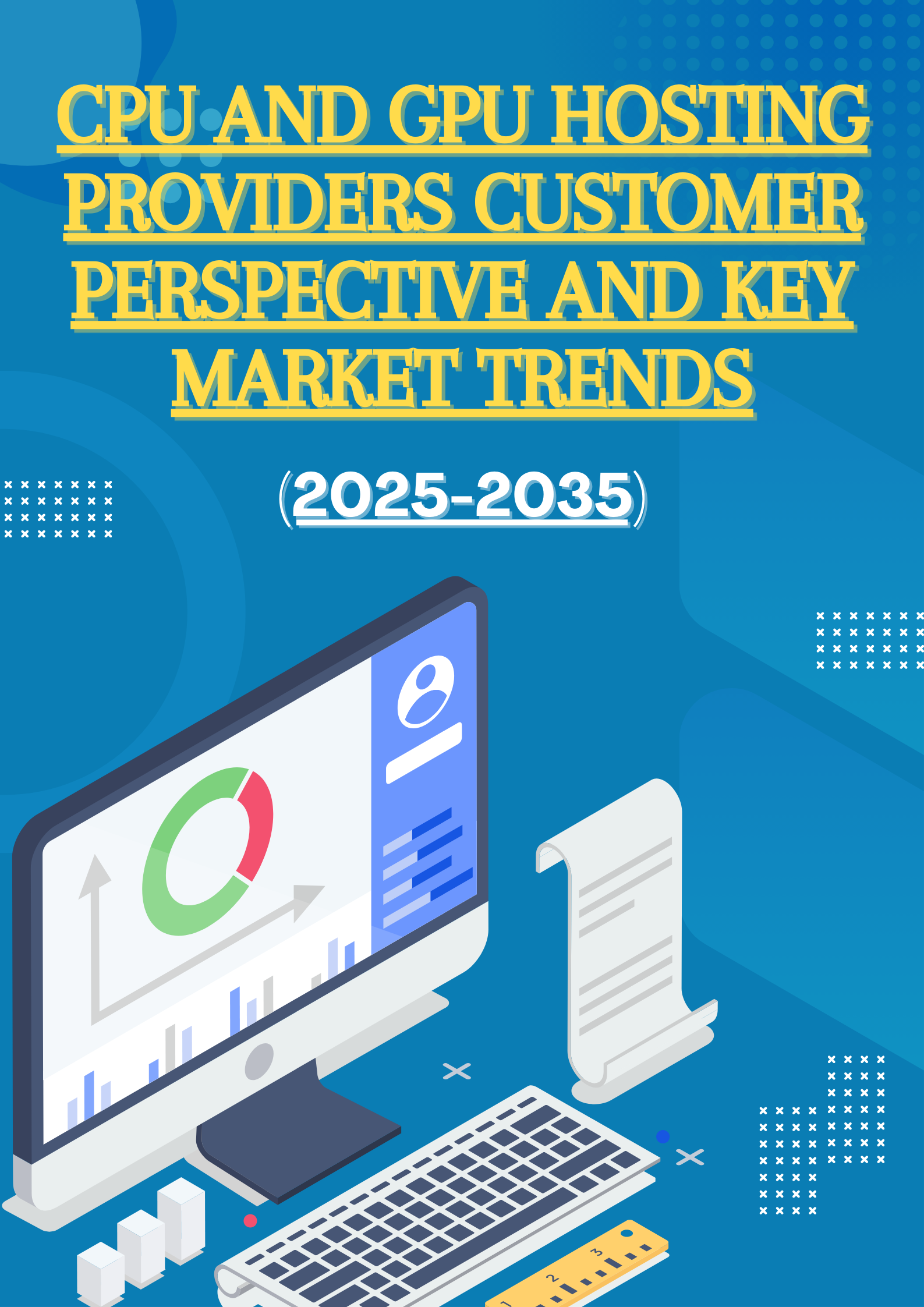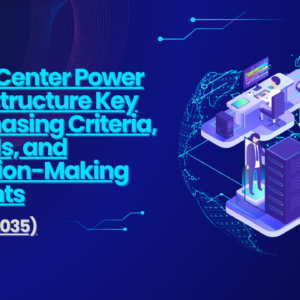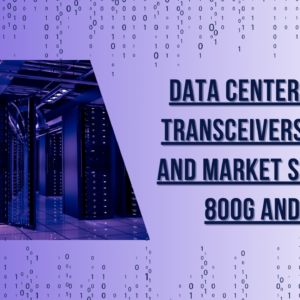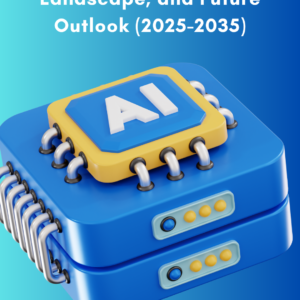1. Executive Summary
-
- Overview of the CPU/GPU Hosting Market
- Key Findings on Customer Purchasing Criteria and Competitive Landscape
- Future Outlook for CPU/GPU Hosting Providers (2025-2035)
2. Introduction to CPU and GPU Hosting Providers
-
- Definition and Importance of CPU/GPU Hosting in Cloud Computing
- Market Overview and Key Players
- Role of CPU/GPU Hosting in AI, Machine Learning, and Data-Intensive Workloads
3. Key Purchasing Criteria for CPU/GPU Hosting Providers
-
- Performance and Processing Power
- Scalability and Flexibility
- Pricing Models (Pay-per-Use, Subscription, Reserved Instances)
- Network Latency and Data Transfer Speeds
- Customer Support and Service Level Agreements (SLAs)
- Security and Compliance Features
- Integration with Existing Cloud Infrastructure and Tools
- Customization and Specialized Solutions for AI Workloads
4. Major Differences Between Key Players
-
- AWS (Amazon Web Services): Overview of EC2 Instances, NVIDIA GPUs, and Custom Silicon (Graviton/Inferentia)
- Google Cloud Platform: TPUs vs. GPUs, AI/ML-Specific Offerings, and Cost-Effectiveness
- Microsoft Azure: Diverse CPU/GPU Options, Hybrid Cloud Capabilities, and AI Integration
- Oracle Cloud: Competitive Pricing and Performance for Enterprise Workloads
- Smaller/Niche Players: Specialization in Specific Industries or Workloads (e.g., Paperspace, Vultr, Linode)
5. Performance and Cost Comparison Across Providers
-
- Benchmarking Performance for AI and Machine Learning Workloads
- Pricing Models: Comparing Cost per GPU Hour, Reserved Instances, and Spot Instances
- Key Differentiators in Network Performance and Data Transfer Costs
- Total Cost of Ownership (TCO) for Long-Term Hosting
6. Use Cases and Industry-Specific Requirements
-
- AI and Machine Learning: Requirements for High-Performance GPUs and TPUs
- Gaming and Graphics Rendering: Latency, Speed, and Real-Time Processing Needs
- Scientific Computing and Research: Large-Scale Data Processing and Parallel Computing Demands
- Financial Services: Risk Analysis and High-Frequency Trading Use Cases
- Healthcare and Biotech: Genomics, Drug Discovery, and AI-Powered Diagnostics
7. Security and Compliance in CPU/GPU Hosting
-
- Key Security Features Offered by Hosting Providers
- Compliance with Industry-Specific Regulations (HIPAA, GDPR, PCI-DSS)
- Data Encryption, Privacy Controls, and Multi-Tenant Isolation
8. Customer Support and Service Levels
-
- SLAs and Uptime Guarantees Across Providers
- Customer Satisfaction: Quality of Support and Response Times
- Proactive Monitoring and Managed Services
9. Future Trends in CPU/GPU Hosting (2025-2035)
-
- Increased Adoption of AI/ML Workloads and Demand for GPU Compute
- Evolution of Custom Silicon Solutions (NVIDIA, Google TPUs, AWS Inferentia)
- Edge Computing and Decentralized Cloud Infrastructure
- Sustainability and Energy Efficiency in Data Centers
- Anticipated Competition and Innovation in the Hosting Market
10. Conclusion
-
- Summary of Key Purchasing Criteria and Competitive Differentiators
- Future Challenges and Opportunities for CPU/GPU Hosting Providers
- Final Recommendations for Customers and Investors
11. Appendices
-
- Glossary of Key Terms in CPU/GPU Hosting
- Charts and Data on Performance and Pricing Comparisons
- References to Market Reports and Industry Research
#CPUGPUHosting #CloudComputing #AIWorkloads #MachineLearningHosting #DataIntensiveWorkloads #GPUPerformance #CPUPower #CloudProviders #AWS #GoogleCloud #MicrosoftAzure #OracleCloud #Benchmarking #GPUCostComparison #AIHostingSolutions #ScalabilityInCloud #EdgeComputing #CustomSilicon #TPUvGPU #AIInfrastructure







